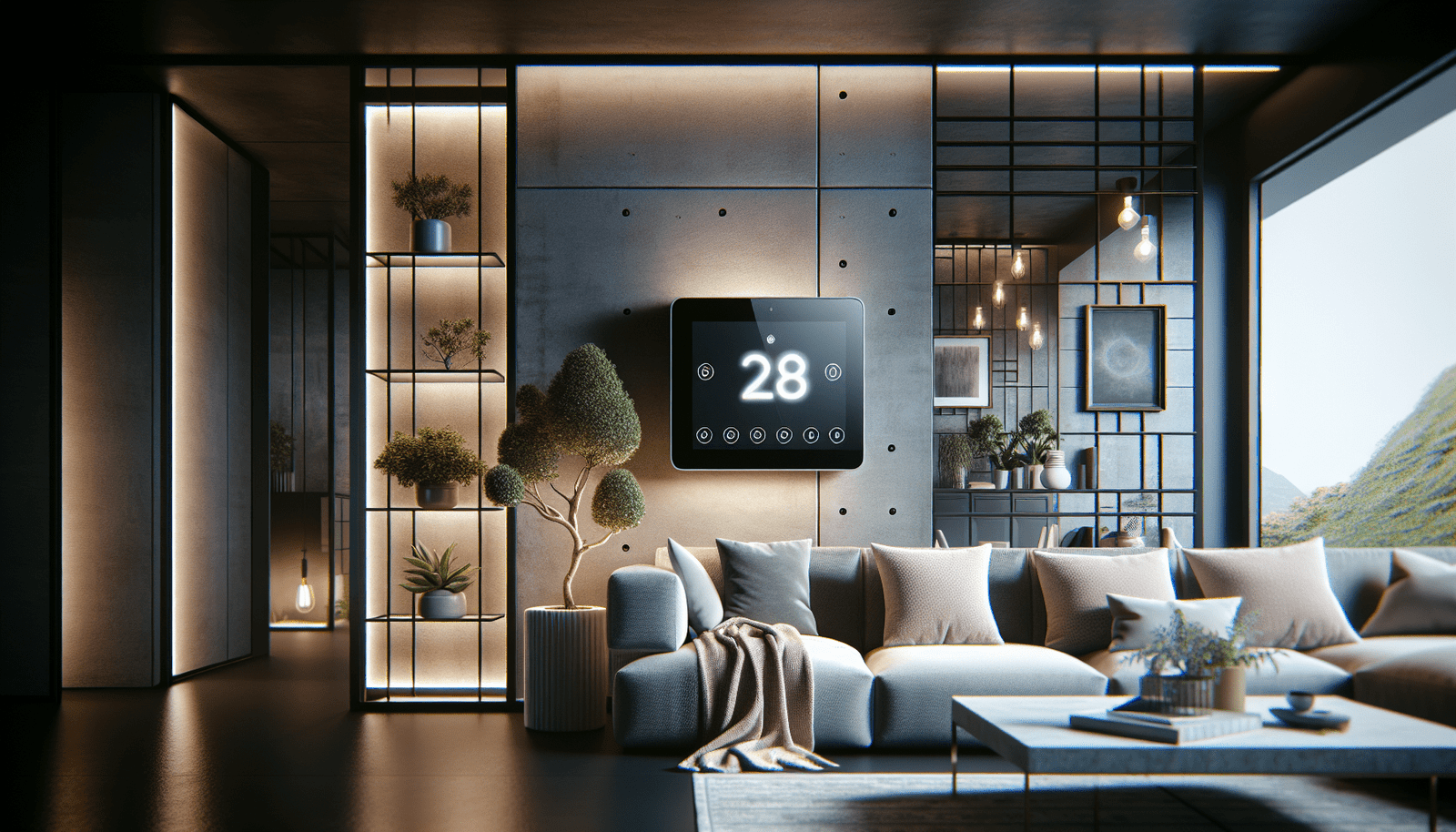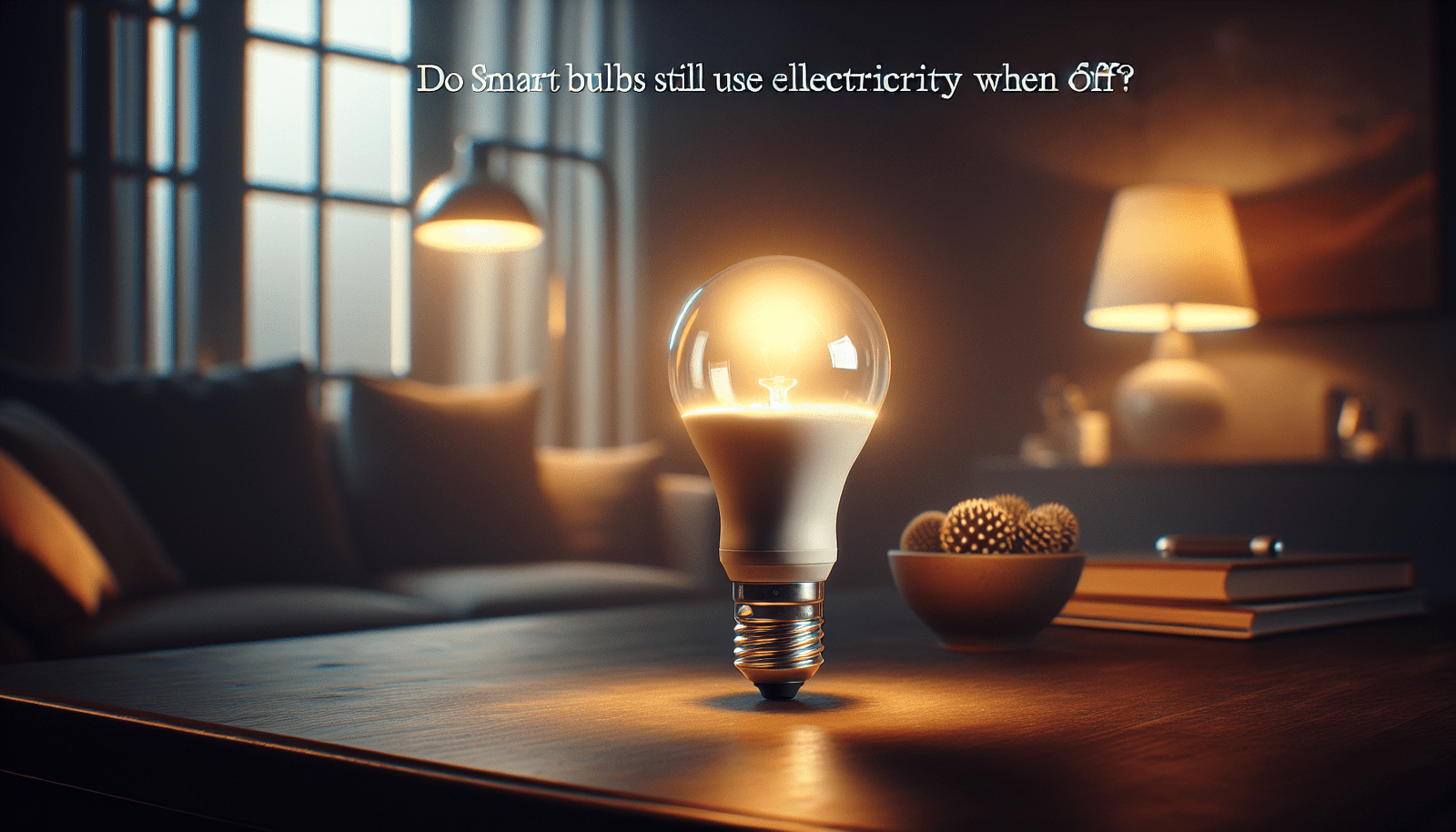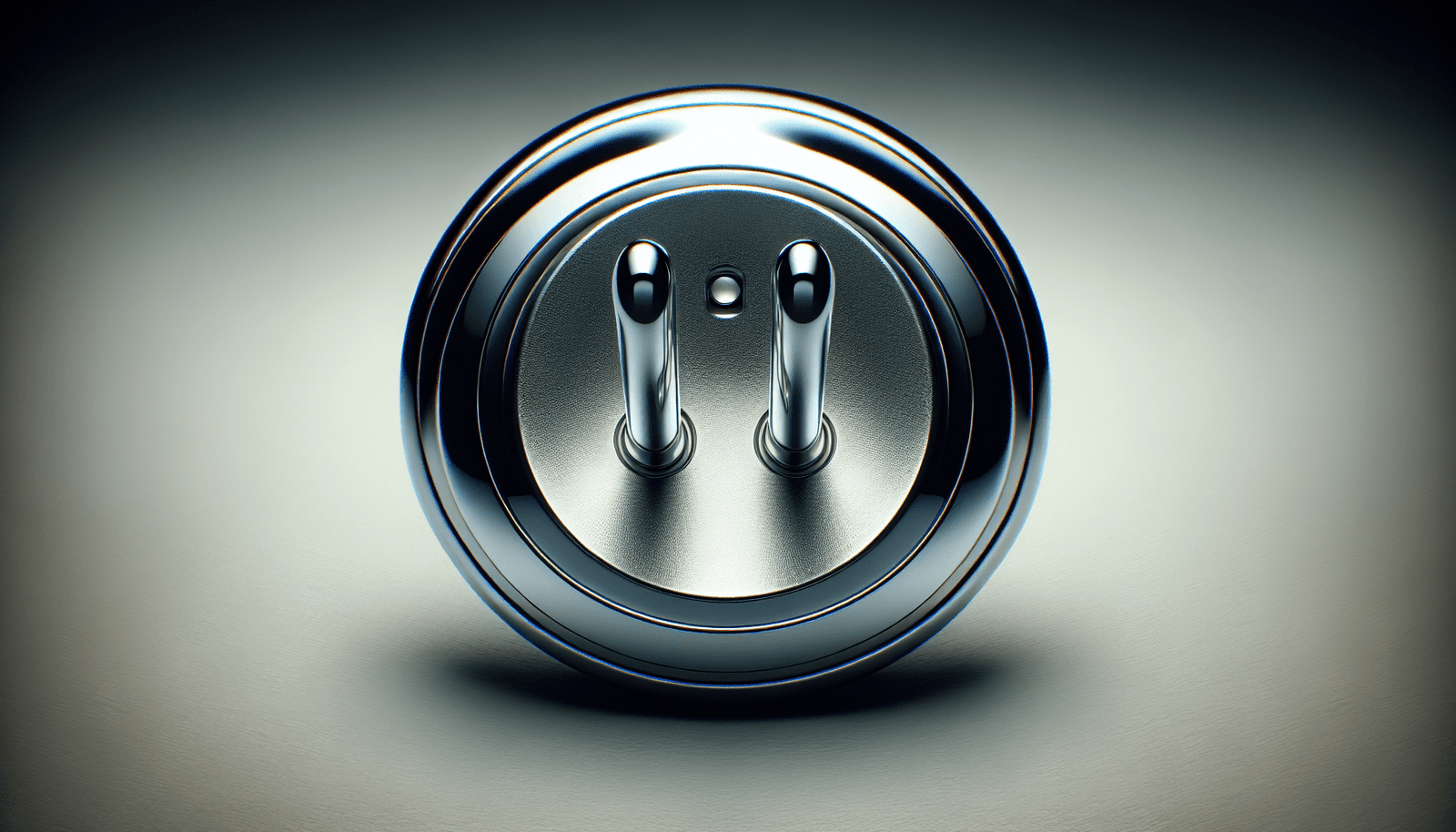Do you find yourself intrigued by the notion of having complete control over your home’s lighting with just a swipe on your smartphone? The concept of managing smart bulbs through a phone is not just a futuristic fantasy; it is a reality that is transforming homes around the world.
Understanding Smart Bulbs
Smart bulbs represent a significant leap in lighting technology, offering capabilities that traditional bulbs simply cannot match. These innovative devices allow users to control light settings remotely, automate lighting schedules, and even change colors with ease.
What Are Smart Bulbs?
At their core, smart bulbs are light bulbs with additional connectivity features that enable them to interact with other devices. Unlike traditional bulbs, they can be controlled via mobile apps, providing flexibility and control at the palm of your hand.
Connectivity Options: Wi-Fi, Bluetooth, and Beyond
Smart bulbs often rely on Wi-Fi, Bluetooth, or Zigbee connectivity to communicate with your phone. Each has its advantages; Wi-Fi offers remote access, allowing control from anywhere with an internet connection, while Bluetooth provides localized control without the need for a hub. Zigbee, often used in conjunction with a smart hub, offers a reliable and energy-efficient option.
Key Features of Smart Bulbs
Smart bulbs are designed with various advanced features such as dimming, color changes, and scheduling capabilities. These features allow users to create the perfect ambiance for any occasion. Whether you are hosting a dinner party or winding down for the evening, smart bulbs offer the flexibility to adjust lighting to your mood.
Installation and Compatibility
Exploring the installation and compatibility of smart bulbs is crucial for those looking to integrate this technology into their homes.
Where and How to Install Smart Bulbs
Installing smart bulbs is typically straightforward, often requiring no more than screwing the bulb into an existing socket. However, depending on the brand and model, some smart bulbs may require an additional hub for enhanced integration with other smart devices.
Compatibility with Existing Fixtures
Smart bulbs are generally compatible with a wide range of lighting fixtures. Ensuring that the socket matches the bulb’s base is essential to avoid compatibility issues. Standard bases such as E26 and E27 are commonly used in smart bulbs, making them suitable for most home fixtures.
Need for Additional Hubs
Some smart bulbs require a hub to connect to other smart devices, providing advantages such as increased range and enhanced networking capabilities. When choosing smart bulbs, consider whether you prefer a standalone option or one that integrates with a hub for more comprehensive home automation.
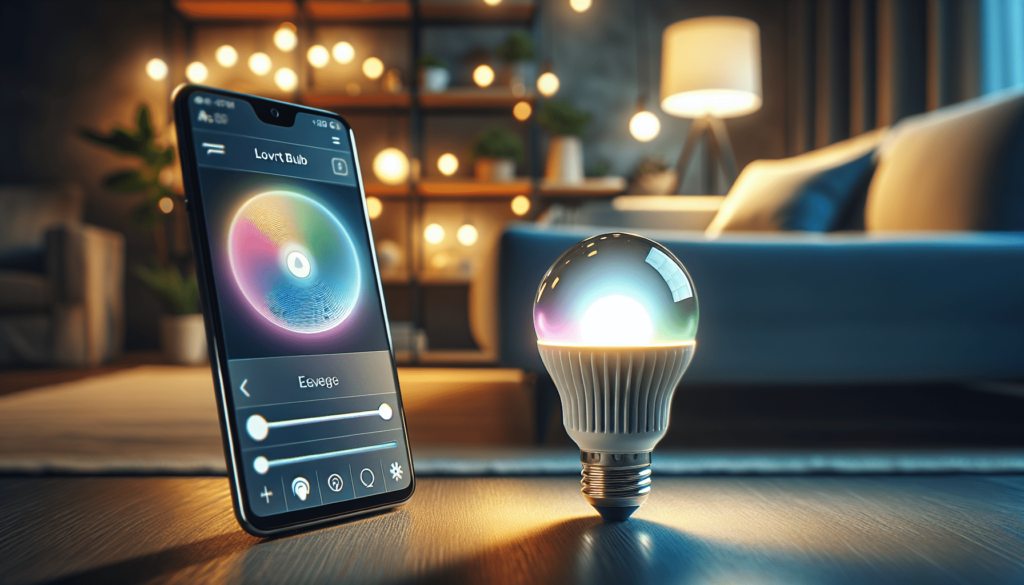
Energy Efficiency and Costs
Smart bulbs not only enhance convenience; they can also contribute to energy savings and reduced electricity bills.
Power Consumption of Smart Bulbs
Smart bulbs are designed to be energy-efficient, consuming less electricity compared to traditional incandescent bulbs. The use of LED technology enables smart bulbs to provide the same amount of light while using a fraction of the energy.
Long-term Savings
Over time, the reduced power consumption of smart bulbs translates into significant energy savings. Although the initial cost of smart bulbs may be higher than regular bulbs, the investment pays off in reduced electricity bills and extended bulb lifespans.
Impact on Electricity Bills
Smart lighting systems can lower electricity costs by allowing precise control over when lights are on, and how they function. Implementing automated schedules can further optimize energy usage by ensuring lights are only used when necessary.
Automation and Integration
One of the most enticing aspects of smart bulbs is their ability to integrate with modern home automation systems.
Remote Control of Smart Lights
Using your smartphone, you can control smart bulbs remotely, offering the convenience of adjusting lighting even when you’re not at home. This feature is especially useful for those who travel frequently or have irregular schedules.
Connection with Voice Assistants
Smart bulbs can be integrated with popular voice assistants like Alexa, Google Assistant, and Apple HomeKit. This compatibility allows for hands-free control, enabling users to adjust lighting settings with simple voice commands.
Scheduling and Automating Lights
Scheduling is a powerful feature that allows users to set specific times for lights to turn on or off automatically. Create routines to wake up gradually with increasing light or mimic your presence at home while away with strategic lighting schedules.
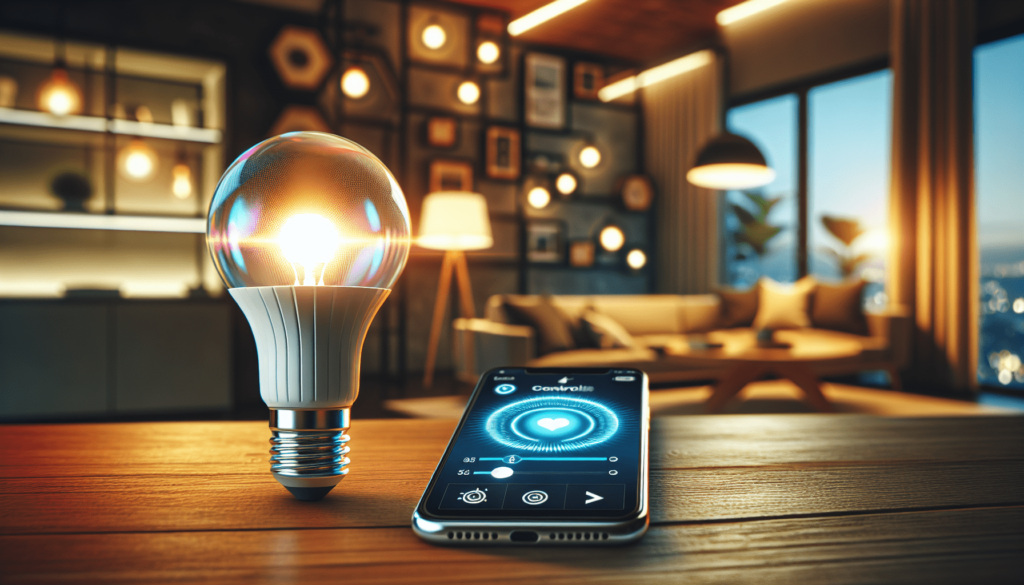
Drawbacks and Limitations
While smart bulbs offer numerous advantages, it is important to consider potential drawbacks before making a switch.
Dependence on Wi-Fi Networks
Smart bulbs often rely on a stable Wi-Fi connection, which can be a limitation if your network experiences frequent disruptions. Such dependence can also create lag in response times or even complete inaccessibility during network outages.
Security Concerns
As with any connected device, smart bulbs can present security risks. It is crucial to ensure your home network is secured with strong passwords and regular updates to minimize vulnerabilities.
Power Consumption in Standby Mode
Although smart bulbs are energy-efficient when active, they do consume a small amount of power even when turned “off” to maintain connectivity. Considering this factor is important when evaluating overall energy consumption.
Troubleshooting and Best Practices
Proper setup and maintenance can minimize common issues associated with smart lighting systems.
Solutions for Connectivity Issues
When experiencing connectivity issues, resetting your smart bulb or refreshing your Wi-Fi connection can often resolve the problem. Ensuring your bulb is within range of the network is also crucial for stable operation.
Handling Power Failures
In the event of a power failure, smart bulbs will typically return to their default state once power is restored. Some models offer memory functions to retain settings, but it is wise to check your specific model’s capabilities and adjust expectations accordingly.
Smart Bulb Recognition Problems
If your phone or smart hub fails to recognize a bulb, ensure the bulb is properly screwed in and powered. Repeating the initial syncing process often resolves recognition issues, but consulting the manufacturer’s support may also be necessary for persistent problems.
Best Practices for Smart Lighting
Regularly updating the accompanying app and firmware ensures optimal performance and security for your smart bulbs. Additionally, make sure to consult the product’s manual for specific maintenance tips tailored to your smart lighting model.
Smart Lighting Ecosystems
Understanding the broader ecosystem can enhance the efficiency and integration of smart bulbs in your home.
Interaction with Smart Switches and Dimmers
Pairing smart bulbs with smart switches and dimmers allows for more complex lighting schemes, providing enhanced control and customization. This synergy helps achieve a cohesive smart lighting experience throughout the entire home.
Utilizing Lighting Hubs
Using a smart hub can centralize control of your smart lighting system, offering seamless integration with other smart home devices. This approach simplifies management and streamlines interactions across multiple platforms and devices.
Achieving a Seamless Experience
For a truly seamless smart home experience, ensure all components of your smart lighting ecosystem are compatible and optimized for interoperability. Coordinating across devices can reduce complexity and enhance user satisfaction.
Outdoor and Specialty Uses
Smart bulbs are not limited to indoor use; they can also be optimized for outdoor and specialty applications.
Outdoor Smart Lighting Solutions
Weather-resistant smart bulbs provide opportunities to revolutionize your outdoor lighting. They offer features such as motion detection, scheduling, and even security lighting, ensuring functionality in diverse outdoor environments.
Weather Resistance and Durability
When choosing outdoor smart bulbs, prioritize models with strong weather resistance ratings to withstand elements such as rain, snow, and temperature variations. Durability is crucial for maintaining performance and longevity.
Special Applications for Security Lighting
Smart bulbs with integrated security features can increase safety around your property. Innovations like motion sensors and automated patrol lighting offer peace of mind, providing immediate responses to external movement.
Future Trends in Smart Lighting Technology
Staying informed about the future direction of smart lighting technology can help guide purchasing decisions.
Evolution of Smart Lighting Features
As technology advances, you can expect to see even more sophisticated features and integration capabilities. The fusion of AI learning with lighting systems promises to deliver personalized experiences tailored to individual preferences.
Continued Advancements in Connectivity
Future developments may involve enhanced connectivity standards, simplifying integration with other smart devices and removing current barriers to seamless operation.
Energy Efficiency Innovations
Ongoing improvements in energy efficiency will make smart bulbs even more attractive for the environmentally conscious consumer. Tomorrow’s lighting solutions promise to be more sustainable, efficient, and cost-effective.
Conclusion
Controlling smart bulbs with your phone brings numerous benefits, from convenience and efficiency to security and aesthetics. With careful attention to installation, compatibility, and maintenance, integrating smart lighting into your home can be a rewarding and intelligent choice. Whether you are a homeowner, renter, or tech enthusiast, embracing this technology unlocks new levels of control, energy savings, and enjoyment in your personal space.
Disclosure: As an Amazon Associate, I earn from qualifying purchases.



